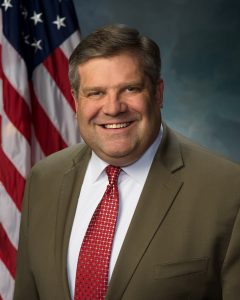
With dedication and diverse experience, Mike Canada would like to get to work on the CUSD Governing Board. He has lived in Coronado for 25 years, arriving here while serving in the Navy. He quickly embraced this small community, where he discovered that everyone looks out for each other, reminiscent of his hometown of Grand Junction, Colorado.
He would like to see more people attend the school board meetings, whether it be for a controversial topic or to praise the administration and teachers for a job well done. “It’s great that there is a lot of parent involvement at the schools here, but I would like to encourage even more,” he says. “I envision establishing an open flow of community activism where people say, ‘What can I do to help?’”
As a non-partisan candidate who believes in transparency, he feels he is uniquely qualified with his educational, naval, finance, and law background to tackle the major issues that CUSD is currently facing. He believes that changes need to be made at CUSD, but done thoughtfully for the kids as well as educating parents along the way.
He firmly advocates for a strong education curriculum; and is a true believer in teaching respect, and that children need to learn how to think, not what to think. He believes that the material contained in the 1619 Project Curriculum is filled with errors, is divisive and doesn’t tell the true story of the history of the United States. Having created curriculum at the university level, he came to this conclusion from his own research and dialogue with professors at Princeton and Brown universities.
He believes schools should strictly enforce a zero-tolerance policy for bullying. Having experienced this himself and through his kids, he feels that it’s not just about race, but can stem from socioeconomic factors, body types, and many other influences. “There is no reason for kids to have to endure being picked on. It’s important for us to find commonality to fix this issue and help kids understand the consequences. CUSD has this policy, but it needs to be emphasized and outlined more specifically.”
He points to social media as being a major contributing factor to problems. “I firmly believe in banning unsanctioned phones and media devices in class, they’re absolute distractions.” Furthermore, he believes that “if kids returned to taking handwritten notes in class, they are more likely to retain the information and be less distracted.”
With his tax and education background, Canada is ready to dive in and help with the budget issues that CUSD is facing. He says it’s not surprising that many people don’t understand how the district’s finances work, because they are complicated. One goal would be to bring down the debt, which is especially crucial for the next six years until 2026/27 when the basic aid program kicks in. Until that time, the three percent surplus standard must be kept in the budget.

Canada supports the recent Early Childhood Development Center change because of the increased revenue to the district, and he is pro developing relationships with the Navy, especially since 36 percent of students are from Navy families. Some ideas he offered to reduce spending include combining more projects, care-taking current resources, soliciting competitive bids, and allocating money in the most effective ways possible.
“I would like to delve more into specifics on how to cut expenses. I am thorough and ask lots of questions to get to solutions,” he comments. He notes that the PTO and Coronado Schools Foundation do an excellent job fundraising to enhance the budget, but more could be done; planning and fiduciary conscientiousness are the keys to keeping the budget on track.
With no other political ambitions, he was encouraged to run by people associated with the school who felt his expertise would be a welcome addition to help CUSD continue to provide quality education for years to come. He spent three years on the budget committee of the university where he taught and has experience navigating the complicated nuances of education finance.
When asked his reaction to the recent student-led march and petition regarding social and racial justice, he responded, “I think it is admirable for kids to be that perceptive. I think differing views are acceptable as long as they are tempered with respect. It is good to voice opinions, but also important to understand issues. It’s crucial for adults to realize where the students are coming from.”
In regard to helping improve diversity and inclusion, Canada emphasizes that, “CUSD must have a more precise structure in this environment. There is a difference between what is done for elementary, middle, and high school students. I’m not sure we need to create totally new classes to incorporate diversity curriculum. I think it can be accomplished within history, literature, art, and other classes. For example, students can learn about diversity through the music of musicians I love like drummer Joe Jones, Miles Davis, John Coltrane and drummer Tony Williams, to name a few. Diversity abounds in music, especially jazz.” This ties into his passion for playing the drums, which he began doing at the age of 10, growing up listening the music of Count Basie and other jazz artists, from his jazz guitarist dad’s influence, when his peers favored Eric Clapton.
Regarding CUSD students heading back into the classroom for in-person learning, he learned at a recent meeting with Superintendent Karl Mueller that it is still a wait and see situation. There is an average of 32 students per class, but implementing a safe plan puts only between 12 and 14 kids in the classroom.
While Canada has been teaching his university classes online, he is an advocate for blended learning, which he feels is cost efficient and can be a gateway for students who might otherwise not be able to attend in person. Mueller said that CUSD is looking at it month to month, and students will be able to go back as soon as quality education can be provided in a safe environment. Canada praised Mueller and all the CUSD principals for being accessible, with an open-door policy if parents have questions. He and his wife have a solid understanding of distance learning because they previously homeschooled their children.

Canada has three children. Jack, who graduated from CHS this year, Kahlia who is a junior at CoSA, and 12-year old Gabrielle. His wife Caroline is from England, and they had the opportunity to live there for several years while he was studying for his LL.B (honors) in Law from Durham University Law School. As a family, they love exploring all around San Diego County, with a special affinity for enjoying Cherry Apple and Rhubarb Apple pies in Julian.
Due to COVID-19 he is currently furloughed from his teaching position at Lewis University in Chicago, and he feels this is the perfect opportunity for him to dig into these critical issues.
Learn more at his Facebook page or email him at [email protected]. Yard signs, designed by his wife and daughter, will be available shortly.




